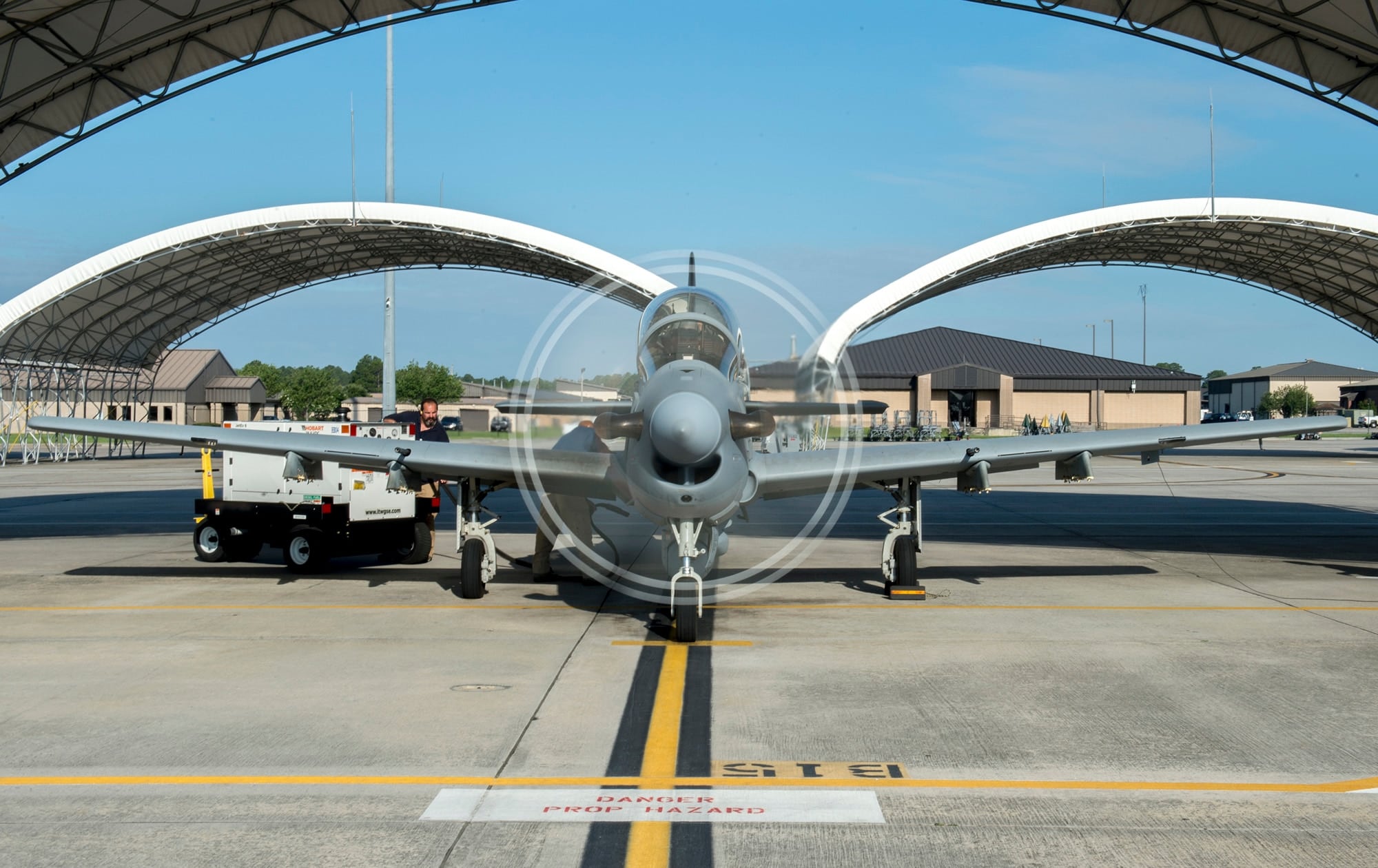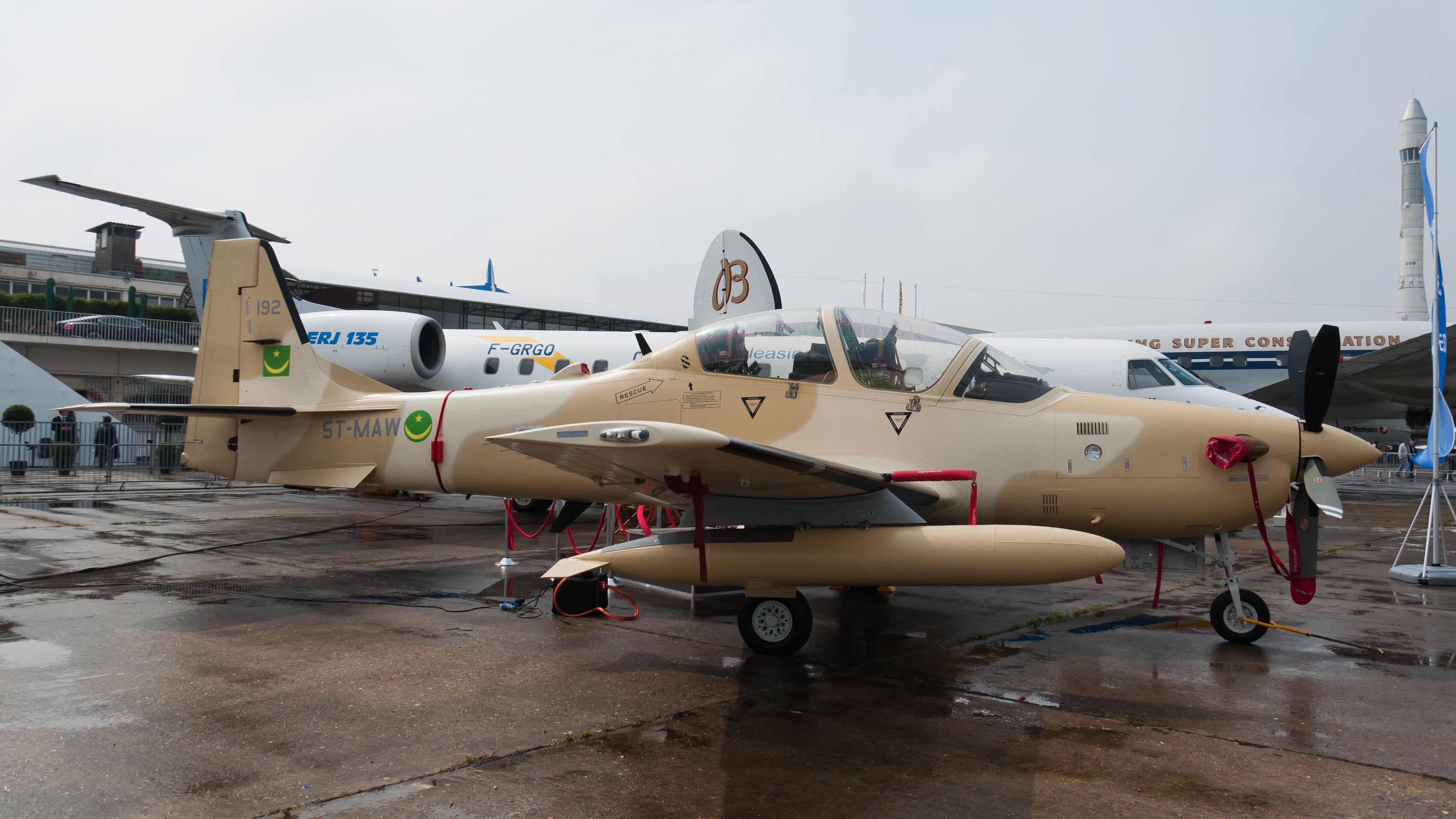WASHINGTON — The U.S. State Department has approved a $593 million foreign military sale to Nigeria, including 12 A-29 Super Tucano light-attack aircraft, in order to further the nation’s campaign against the militant group Boko Haram.
Nigeria has been seeking permission from the U.S. government to buy A-29s since 2015; however, the Obama administration had put the sale on hold due to concerns about the country’s human rights record.
In February, U.S. President Donald Trump signaled his support for the sale during a phone call with Nigerian President Muhammadu Buhari. By April, the deal seemed to be moving forward, as unnamed U.S. officials told The Associated Press that Congress would be notified of the sale over the coming weeks.
RELATED

The Defense Security Cooperation Agency notified Congress on Aug. 2.
A U.S. government official, who was not authorized to speak on the record, called the A-29 sale just one element of the United States’ efforts to fight terrorism and protect civilians in Nigeria and other areas in West Africa.
“These aircraft offer improved targeting capabilities, allowing Nigeria to more effectively lead the fight against Boko Haram and the ISIS West Africa branch, while also potentially reducing risks of collateral damage and civilian casualties,” the source said, using an acronym for the Islamic State group.
“The training included in this comprehensive package would help build the skills and procedures to effectively and responsibly operate the aircraft in accordance with international human rights law and the law of armed conflict,” the government official added.
Besides the 12 aircraft, the weapons package also includes training, munitions, related equipment and maintenance support.
RELATED

The proposed sale may face resistance on Capitol Hill, which has 30 days to block the sale. After that period of time, negotiations between will begin, meaning the current value of the deal and procurement quantities are not set in stone.
In June, Sens. Cory Booker, D-N.J., and Rand Paul, R-Ky., sent a letter to Secretary of State Rex Tillerson expressing concerns about selling military gear to Nigeria. They pointed to the Nigerian Air Force’s attack on a displaced persons’ camp earlier this year, which reportedly killed more than 100 civilians, as evidence of the recklessness of the nation’s armed forces.
“We are concerned that the decision to proceed with this sale will empower the government to backtrack even further on its commitments to human rights, accountability, and upholding international humanitarian law, which in turn could spur greater unrest and violence, particularly in the northeastern part of the country,” the senators wrote in a letter to Tillerson.
The A-29 Super Tucano was designed for counterinsurgency and close-air support missions, and the aircraft has been purchased through the U.S. government for the Afghan and Lebanese militaries to fight against ISIS and other militant groups. The aircraft, built by Brazilian aerospace firm Embraer, is modified by Sierra Nevada Corporation, which acts as prime contractor and systems integrator for sales to the U.S. government.
The sale would be good news for Embraer’s A-29 production line in Jacksonville, Florida. In June, Jackson Schneider, Embraer’s executive vice president of defense and security, said current A-29 orders for Afghanistan and Lebanon would run through the end of 2017.
“I hope that before the end of this year, I will have the possibility to announce other contracts and to guarantee the continuance of the operations in Jacksonville,” he said then.
The U.S. Air Force has also expressed interest in buying light-attack aircraft like the Super Tucano. This week, the service kicked off an experimentation campaign with the A-29 and other aircraft to assess their capabilities. If pleased, officials could begin procuring one of the options.
Valerie Insinna is Defense News' air warfare reporter. She previously worked the Navy/congressional beats for Defense Daily, which followed almost three years as a staff writer for National Defense Magazine. Prior to that, she worked as an editorial assistant for the Tokyo Shimbun’s Washington bureau.








